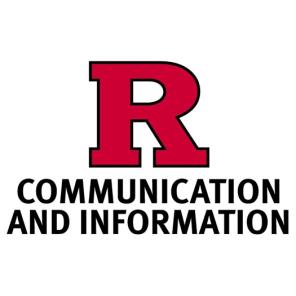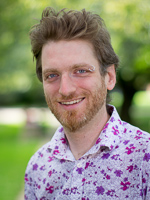March 29, CSS Lab and the NetSCI Lab Talk with Dr. Benjamin Mako Hill

 Please join us for an upcoming talk by Dr. Benjamin Mako Hill, Associate Professor in the Department of Communication, University of Washington.
Please join us for an upcoming talk by Dr. Benjamin Mako Hill, Associate Professor in the Department of Communication, University of Washington.
Dr. Hill will discuss the past and future of peer-production platforms like Wikipedia. The talk will be hosted jointly by the CSS Lab and the NetSCI Lab.
Lifecycles of Peer-Produced Knowledge Commons
After increasing rapidly over seven years, the number of active contributors to English Wikipedia peaked in 2007 and has been in decline since. A body of evidence will be presented that suggests English Wikipedia’s pattern of growth and decline appears to be a general feature of “peer production”—the model of collaborative production that has produced millions of wikis, free/open source software projects, websites like OpenStreetMap, and more. It will be argued that this pattern of growth, maturity, and decline is not caused by newcomers who have stopped showing up, but rather because communities have become less open to the newcomers who do arrive. A theoretical model and a range of empirical evidence will be provided that suggests why this surprising dynamic may be a rational approach to the shifting governance challenges faced by digital knowledge commons.
Bio: Benjamin Mako Hill is a social scientist and technologist. In both roles, he works to understand the social dynamics that shape online communities. His work focuses on communities engaged in the peer production of digital public goods—like Wikipedia and Linux. He is an Associate Professor in the Department of Communication at the University of Washington and a founding member of the Community Data Science Collective. He is also a Faculty Associate at the Berkman Klein Center for Internet and Society at Harvard University. He has also been an activist, developer, contributor, and leader in the free and open-source software and free culture movements for more than two decades as part of the Debian, Ubuntu, and Wikimedia projects. During the 2023-2024 academic year, he is a Fellow at the Center for Information Technology Policy at Princeton University.
 Please join us for an upcoming talk by Dr. Benjamin Mako Hill, Associate Professor in the Department of Communication, University of Washington.
Please join us for an upcoming talk by Dr. Benjamin Mako Hill, Associate Professor in the Department of Communication, University of Washington.
Dr. Hill will discuss the past and future of peer-production platforms like Wikipedia. The talk will be hosted jointly by the CSS Lab and the NetSCI Lab.
Lifecycles of Peer-Produced Knowledge Commons
After increasing rapidly over seven years, the number of active contributors to English Wikipedia peaked in 2007 and has been in decline since. A body of evidence will be presented that suggests English Wikipedia’s pattern of growth and decline appears to be a general feature of “peer production”—the model of collaborative production that has produced millions of wikis, free/open source software projects, websites like OpenStreetMap, and more. It will be argued that this pattern of growth, maturity, and decline is not caused by newcomers who have stopped showing up, but rather because communities have become less open to the newcomers who do arrive. A theoretical model and a range of empirical evidence will be provided that suggests why this surprising dynamic may be a rational approach to the shifting governance challenges faced by digital knowledge commons.
Bio: Benjamin Mako Hill is a social scientist and technologist. In both roles, he works to understand the social dynamics that shape online communities. His work focuses on communities engaged in the peer production of digital public goods—like Wikipedia and Linux. He is an Associate Professor in the Department of Communication at the University of Washington and a founding member of the Community Data Science Collective. He is also a Faculty Associate at the Berkman Klein Center for Internet and Society at Harvard University. He has also been an activist, developer, contributor, and leader in the free and open-source software and free culture movements for more than two decades as part of the Debian, Ubuntu, and Wikimedia projects. During the 2023-2024 academic year, he is a Fellow at the Center for Information Technology Policy at Princeton University.
